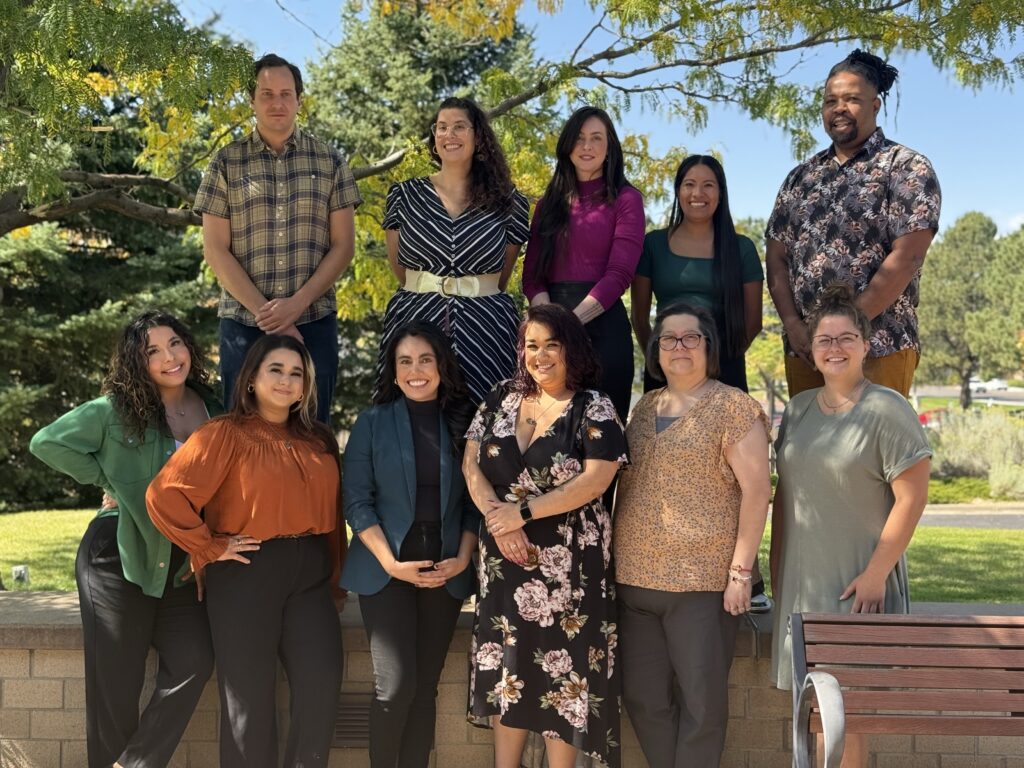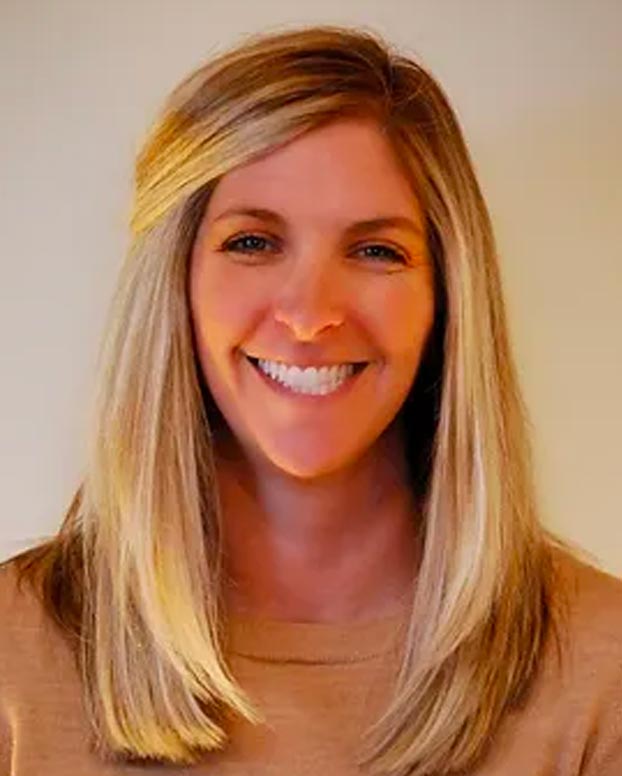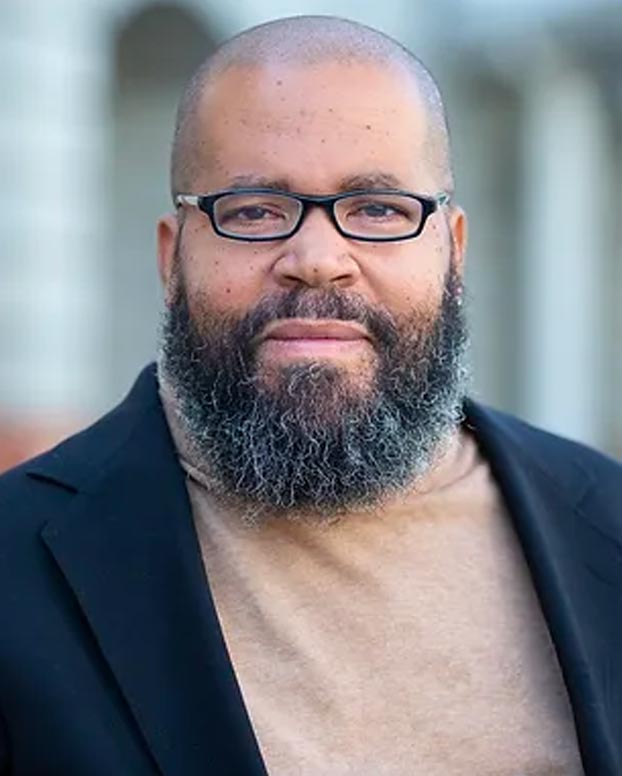Denver START: Revolutionizing Mental Health Care for Individuals with I/DD in Denver
October 4, 2024

Ensuring Timely and Accessible Mental Health Care for Individuals with I/DD
Today, there is a strong and renewed focus on the importance of maintaining healthy mental health practices to strike positive balance in our everyday lives. Unfortunately, this philosophy does not inherently apply to those with disabilities. Namely, those with intellectual and developmental disabilities (I/DD).
Most often, mental health concerns for people with I/DD are inadequately treated or simply go unrecognized, which can lead to issues such as a lower quality of life and mental health crises for those impacted. This lack of awareness and insufficient access to preventative mental health care can be attributed to a phenomenon called Diagnostic Overshadowing, which overattributes mental health issues to a person’s disability, and leads people with I/DD who seek mental health care to often be underdiagnosed or misdiagnosed when seeking mental health treatment.
When a mental health crisis occurs, first responders, often untrained in de-escalating such situations, are called to assist, placing additional strain on their already heavy workloads. Many times, these interventions lead to hospital transport where individuals may be held or discharged without proper intervention or follow-up, perpetuating a costly cycle for cities that fails to improve outcomes for those who need timely support the most.
Thanks to programs such as Denver START, a program of Rocky Mountain Human Services, we are seeing changes in the ways that mental health is prioritized and addressed for individuals with I/DD through education, awareness, and improved mental health care.
At the heart of Denver START lies a commitment to providing accessible and timely crisis prevention and intervention services to individuals with I/DD who also face mental health challenges. With a team of START-certified professionals boasting unique expertise in the mental health aspects of I/DD, Denver START ensures that individuals and their families receive person-centered care that supports in long-term stabilization of the individual alongside their support system.
“Ultimately, our goal is to move the folks that we support from crisis to a life filled with meaning and accomplishment,” Mariam Alami, the Associate Director of Denver START, shared.
Person-Centered Mental Health Care with Roots in a National Model
Denver START is a pilot program of the nationally recognized model with a high degree of success in other states. START stands for Systemic, Therapeutic, Assessment, Resources, and Treatment. The overlapping tenets of START can be seen below and include trauma-informed and wellness-based care as well as person- and family-centered care.

The START model is a positive psychology model that does more than improve mental health issues in people with I/DD. It also looks deeply at the entire individual holistically, considering their life, relationships, environments, meaning, achievements, emotions, and existing support system.
“We include positive psychology to decrease emergency mental health service usage and we breathe in oxygen to the client’s support system with the goal of stabilizing the client and their support system,” Alami explained.
Since Denver START’s arrival in Denver in 2022, this pilot program has made a measurable impact on the mental health outcomes of people with disabilities.
How Denver START is Making an Impact
The Denver START program strives to bridge the gap between individuals, families, and service providers. A major impact of its program is a reduction in call volume to first responders in crisis situations involving people with I/DD by offering 24/7 crisis intervention services and access to wraparound care for the people supported.
Denver START coordinators and therapeutic coaches work intensively with individuals with I/DD and mental health challenges to teach important skills. START coordinators also offer 24-hour crisis intervention services, which allow the individual experiencing crisis or their loved ones to reach out to the START team they’ve developed a relationship with rather than first responders in the event of a rapid deterioration of mental health symptoms.
“We respond knowing who the person is. Our team has already met them in person, and they’ve come up with a provisional crisis plan,” Alami shared.
Not only is Denver START an incredibly important program for the quality of life and for the healing and recovery of people with both I/DD and mental health challenges, but it also decreases the strain on emergency first responders, who without START are often the ones called to the scene. Additionally, it reduces the financial burden of the city by decreasing emergency service utilization.
And it works.
Of the crisis calls Denver START has received since its inception, only 4% have resulted in transport to the ER or psychiatric in-patient care. That means that 96% of incoming crisis calls have resulted in the person experiencing a mental health challenge remaining in their home and requiring no additional crisis support.
“We’ve had parents in tears because they’re so grateful they don’t need to call first responders,” the Denver START team shared.
Collaborative Support with Denver START Leads to Lasting Change for One Young Man and His Family
 Denver START recently worked with JB, a curious and creative teenager with both I/DD and mental health challenges, who was in crisis. JB had been experiencing anxiety and depression symptoms in addition to his diagnoses of autism spectrum disorder (ASD) and attention deficient hyperactivity disorder (ADHD), leading to impulsive decisions and struggles with daily functioning. His grandmother, who is his primary caregiver and advocate, sought support.
Denver START recently worked with JB, a curious and creative teenager with both I/DD and mental health challenges, who was in crisis. JB had been experiencing anxiety and depression symptoms in addition to his diagnoses of autism spectrum disorder (ASD) and attention deficient hyperactivity disorder (ADHD), leading to impulsive decisions and struggles with daily functioning. His grandmother, who is his primary caregiver and advocate, sought support.
The Denver START team worked closely with JB’s family, healthcare providers, and a crisis intervention team to develop a plan that included various therapies, START therapeutic coaching, and consistent communication between all parties, all designed to work collaboratively to support JB in developing key life skills and coping mechanisms.
Thanks to these efforts, JB made significant progress, which was documented through his START Plan, a comprehensive assessment designed to measure mental health stability, an individual’s level of risk within their support system, and recommended services to promote stability based on the individual’s needs. Ultimately, through the data recorded in the START Plan, JB demonstrated increased stability, and his support system displayed competency to intervene during a crisis, which meant JB graduated from the Denver START program.
JB’s work with Denver START led to improved emotional regulation and he now seeks help when needed, takes daily walks, and maintains good hygiene. His grandmother reports that he’s successfully completing chores and doing laundry as well as enjoying his love for anime and Lego.
In addition, due to Denver START’s emphasis on working within an individual’s existing support system, JB’s support system leverages the training received through coaching and coordination to help him improve communication and be receptive to redirection. He continues to receive applied behavior analysis therapy and general therapy to maintain his improved mental health.
Denver START’s Commitment to Partner Training and Support
Denver START actively develops linkages, or strong relationships with other community partners and providers, to more effectively connect the people they support with key community resources, such as Aurora Mental Health & Recovery, Wellpower’s Co-Responder Program, Support Team Assisted Response (STAR)’s Servicios de la Raza, and Bayaud Enterprises. All these organizations have programming and services that further support individuals that Denver START serves and through formal linkages, Denver START readily connects the individuals it supports with additional resources.
“It is Denver START’s mission to create linkages and collaborations with other Denver organizations to support people with I/DD and mental health vulnerabilities that are in crisis to widen that network of support, and ultimately improve services outcomes,” Alami explained.
Additionally, Denver START staff members utilize their unique cross-training to support mental health providers in understanding the special needs of people with I/DD and those in their specific service industry to recognize and treat poor mental health. Unfortunately, many people working in the I/DD service industry have normalized the existence of mental health issues in the people they serve and don’t attempt to treat mental health separately from the disability diagnosis. Denver START provides community education for people working in both the mental health and I/DD industries to improve this reality.
“We can facilitate and host trainings to really build capacity and understanding around I/DD plus mental health, so we are always looking for organizations to partner with and to further support,” Alami said.
Denver START’s goal with offering community education and trainings is to foster continuing education for everyone working in the intersection of mental health and developmental disabilities. During the fiscal year of 2024, Denver START staff facilitated 46 community trainings aimed at enhancing local capacity to support people with I/DD and mental health needs.
In addition, Denver START has an advisory council comprised of 25-30 organizations from around the city with a vested interest in the outcomes of this program who provide program staff with insights into evolving community needs, feedback on program direction, as well as resources, guidance, and program referrals.
Strengthening Community Connections and Expanding its Reach: Denver START’s Path Forward
As Denver START moves well into its third year in Denver and reflects on its impact so far, program leaders work toward achieving future goals for improving mental health outcomes for Denver residents with I/DD.
-
Become a Fully Certified START Program
Denver START, which is a pilot program of the national model, is on track to become a fully certified START program through the National Center for Start Services (NCSS) by February 2025. Throughout the pilot and program development phase, Denver START has worked closely with NCSS and the Department of Human Services and is now entering the final stages of certification. This means completion of the certification review process, which includes frequent visits from consultants at NCSS, observation of client sessions, audits of client documents, and clear evidence that Denver START is implementing the START model with fidelity. Once fully certified, Denver START will no longer be a pilot program, allowing for more independent operation and decreased oversight from NCSS.
-
Increase the Number of People Supported
Denver START hopes to continue growing by not only increasing referrals for those currently experiencing mental health crisis, but also for people who are at-risk of experiencing mental health crisis to ensure those people also have access to these critical intervention supports such as START therapeutic coaching and the 24/7 support line
Connecting with Denver START improves mental health outcomes and quality of life for every individual served. It also decreases reliance on already over-stretched first responders and greatly reduces the number of trips to the emergency room, saving taxpayer money.
-
Increase additional community linkages to foster additional resources for individuals with I/DD
Denver START aims to enhance community linkages with other organizations, increasing available resources for those it serves and expanding its education and training initiatives at the intersection of I/DD and mental health. If you know of a community organization interested in partnering with Denver START or serving on its advisory council, please reach out to the START team at start@rmhumanservices.org.
Navigating the Path to Support
When asked what she wants people to understand about Denver START, Alami emphasized the larger systemic and collaborative work required to best support people with an overlapping diagnosis of an I/DD and deteriorating mental health symptoms.
“The majority of people that Denver START supports are either over diagnosed or underdiagnosed due to the overlap of I/DD and mental health vulnerabilities, and it is our goal to closely work with all their support systems to ensure our clients have access to appropriate services,” Alami explained.
Alami also emphasized how much Denver START understands the reality that someone in the throes of deteriorating mental health with the dual diagnosis of an I/DD will likely feel overwhelmed and burned out. It can be difficult to seek additional help or add another person to a support system.
“The truth is real change takes a lot of time, and so we want to have conversations around how to best support people over a long period of time,” Alami explained.
If you or someone you know could benefit from the services and supports that Denver START offers, use the contact information below to begin referral process. You can submit a referral for yourself or for someone else. If you have questions about getting connected, send a message to the email listed below.
Get in Touch
Website: Denver START – RMHS (rmhumanservices.org)
Email: START@rmhumanservices.org
Phone: 303-636-5600, option 8






